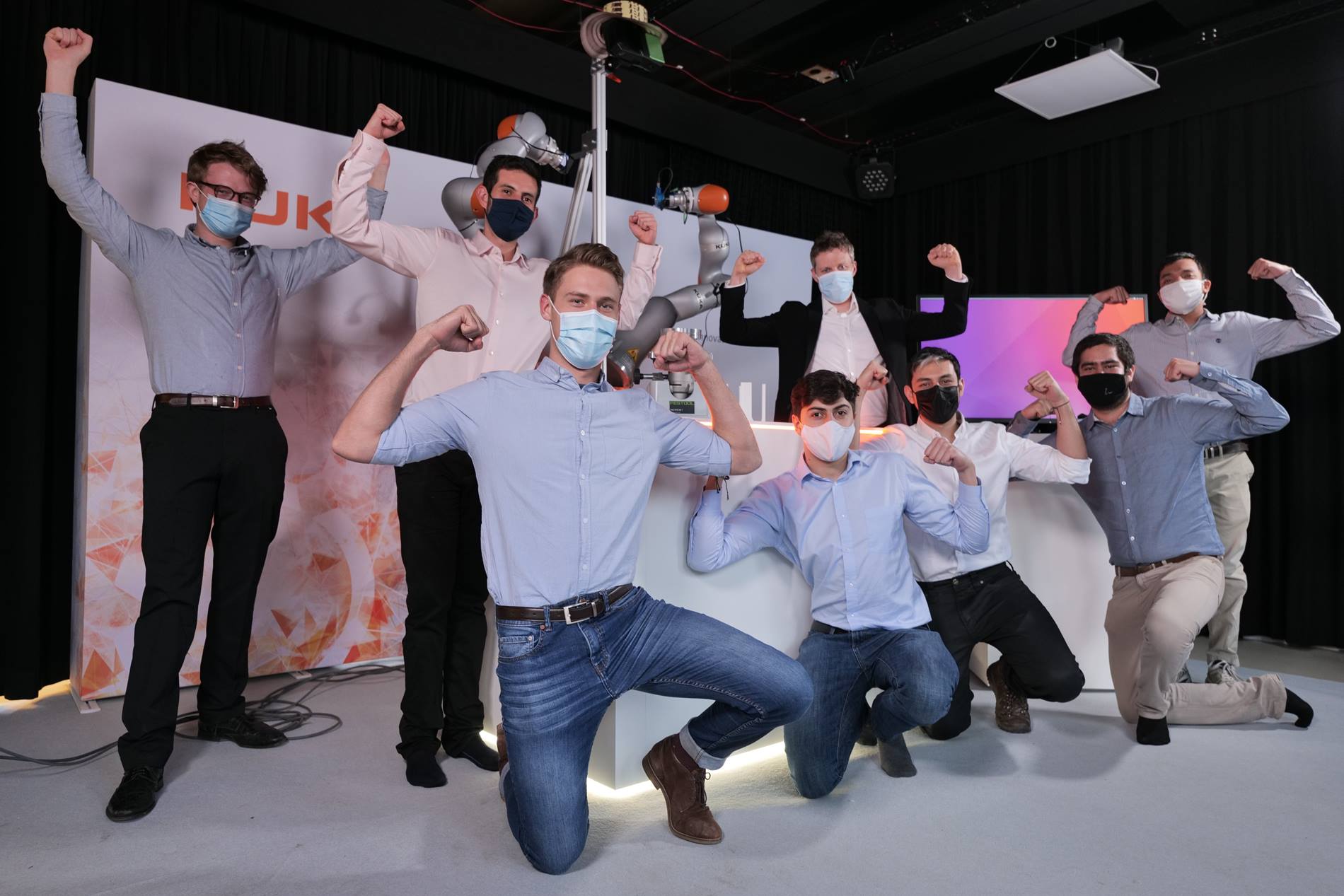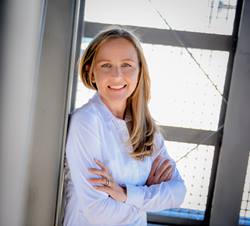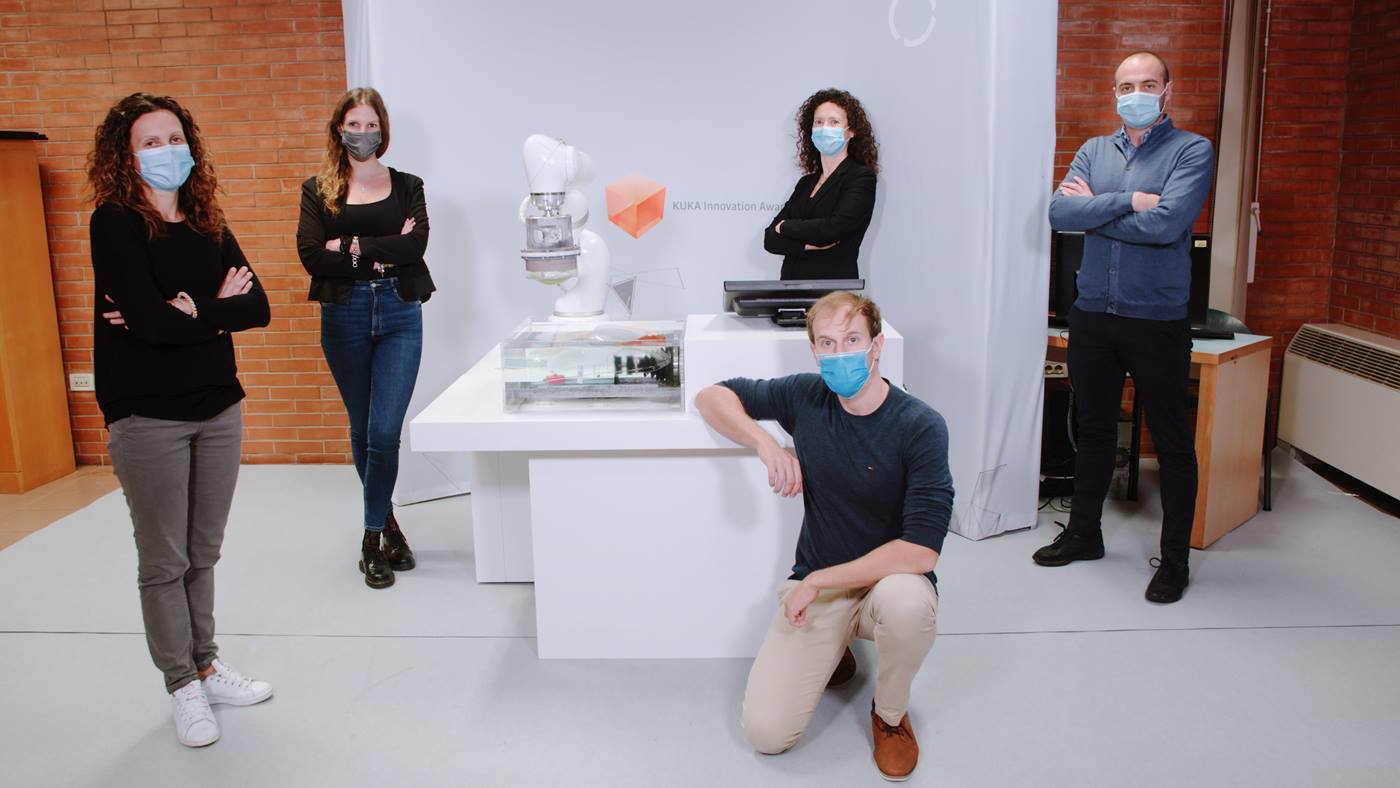Innovation Award 2021: Artificial Intelligence Challenge
By adding artificial intelligence to existing robot systems, the aim is to revolutionize the way humans and robots work together. This competition therefore focused on new use cases in which robots have so far faced major challenges in interacting with their real environment. Among the numerous applications for the tender on the subject of AI, an international jury of experts selected the five best concepts. To enable the finalists to realize these concepts KUKA was providing them with a sensitive lightweight robot LBR iiwa and a 3D vision sensor from Roboception free of charge and they also received coaching from KUKA experts throughout the competition.
At the HM Digital Edition, which was broadcast entirely digitally due to the coronavirus pandemic. An international jury selected the winner of the award during Hannover Messe 2021. The winner of the 20,000 euro KUKA Innovation Award 2021 is the Belgian team „Chorrobot“ of Belgium’s Katholieke Universiteit Leuven and Flanders Make@KU Leuven.




